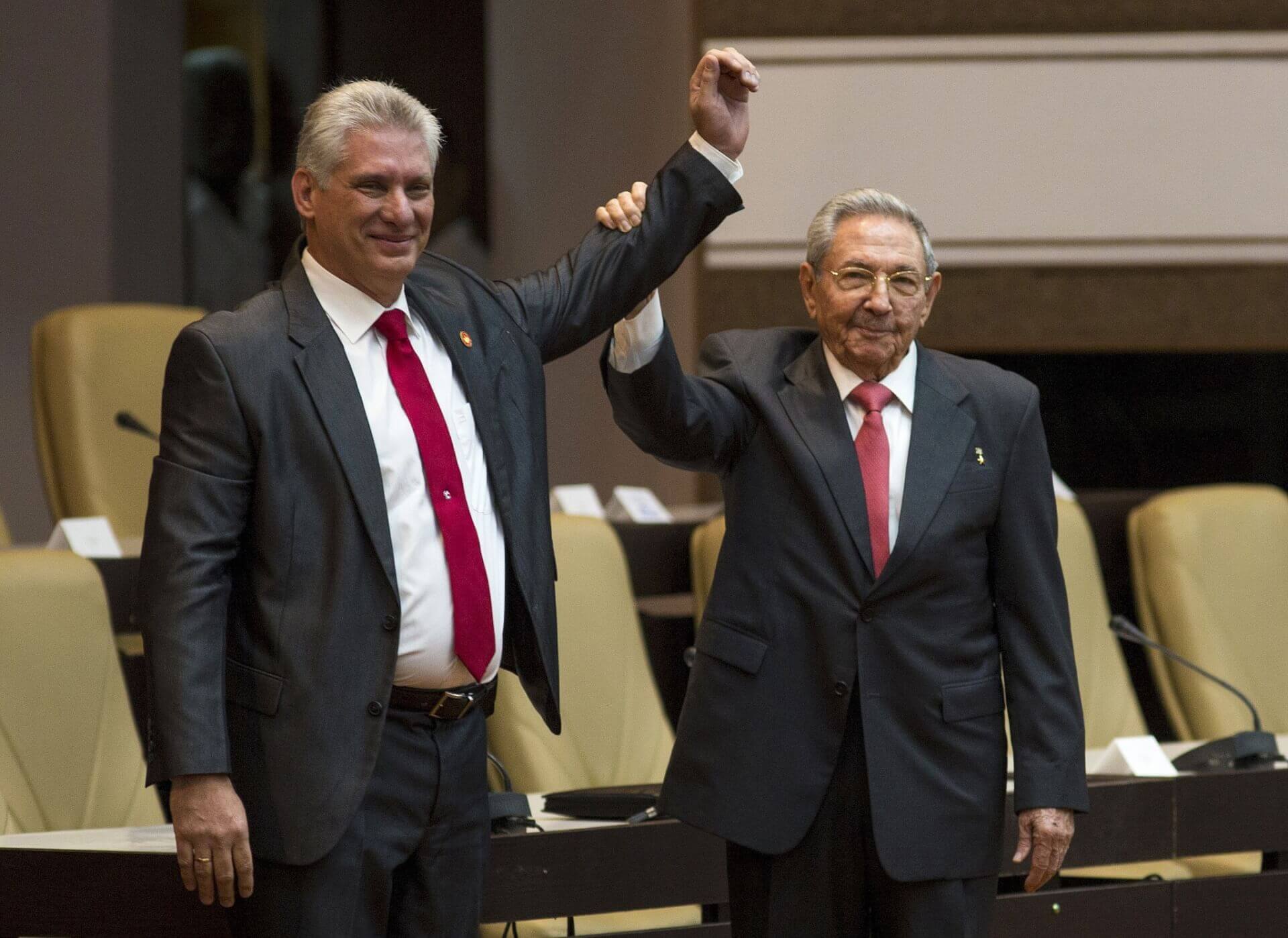On Monday, on the 60th anniversary of the United States’ (US) failed Bay of Pigs invasion, Cuban President Miguel Díaz-Canel was appointed by Congress as the new secretary-general of the country’s Communist Party. His appointment follows de facto leader Raúl Castro’s resignation from the country’s senior-most position last Friday.
This officially brings an end to the Castro era, which first began in 1959, when Raúl Castro’s brother, Fidel, led a communist revolution against dictator Fulgencio Batista and led the country as prime minister from 1959 to 1976 and then as president from 1976 to 2008, at which point Raúl took over due to Fidel’s deteriorating health. Therefore, Raúl’s resignation effectively means that Díaz-Canel is Cuba’s first non-Castro leader in over 60 years.
Last week, in a Congressional meeting, the 89-year-old Castro announced that he was handing over the torch a new generation of Communist leaders who are “full of passion and anti-imperialist spirit”. He expressed his happiness at having “fulfilled his mission” and said that he was “confident in the future of the fatherland”.
It is hoped that his resignation will herald a new era in Cuban history for a country whose economy contracted by 11% in 2020 and continues to face heavy food and medicinal shortages due to US sanctions. In fact, Castro’s resignation comes at a time of rising public discontent, with many demanding economic liberalisation and greater freedom of expression, particularly in light of their increased access to the internet.
The government has attempted to address some of these concerns. In fact, on Friday, Castro acknowledged that Cub had some “structural problems” that disincentivise “work and innovation”.
In September 2020, it simultaneously devalued and united the country’s two currencies in order to mitigate the impact of sanctions that were intensified under US President Donald Trump.
Furthermore, in January, Díaz-Canel also removed some restrictions on small businesses and said that Cuba would gradually move away from its highly centralised model to more of a hybrid system in order to boost exports and reduce the country’s reliance on imports. Additionally, there are also suggestions that state-run businesses could be restructured to allow for foreign investment.
However, the government’s currency manipulation has increased production costs (due to commensurate increases in wages and pensions) and resulted in a spike in the prices of goods and services in the country.
Furthermore, Castro has continued to insist on state control and the monopolisation of certain key industries.
Against this tense backdrop, Díaz-Canel, who became president in 2018, will now become the de facto leader of the country after assuming the highest position in the country’s government. The 61-year-old has rapidly risen through the ranks over the last 12 years; in 2009, he was appointed as the minister of higher education and then become vice president in 2012. It is thought that Díaz-Canel was chosen due to his measured approach and the fact that Castro and his loyalists believe that he will not take the country in a radically different direction.
Díaz-Canel has continued to reject what Cuba views as American imperialism. In fact, just in January, he spoke out against Trump’s decision to add Cuba to Washington’s list of state sponsors of terrorism (SST), which included a number of new sanctions that introduce a host of new restrictions on travel from the US to Cuba as well as financial transfers between the two countries. At the time, the Cuban president said that the new designation “exposes Washington’s double standards,” adding, “To claim that Cuba sponsors terrorism is Donald Trump administration’s height of cynicism. The blockade that it imposes and strengthens against Cuba is in itself State terrorism.”
Furthermore, the Cuban president has also increased its already strong ties with North Korea, China, Russia, Bolivia, and Venezuela.
Referring to Díaz-Canel’s ability to ensure a seamless transition in leadership, Castro has said: “Diaz-Canel is not the result of improvisation, but a thoughtful selection. He is a young revolutionary with conditions to lead the Party and the country,” adding, “He has formed a coherent team between the Party, the State, and the Government. I am confident that he will know how to guide the people and the communist militancy with honesty and unity before any adversity.”
At the same time, Castro also echoed Díaz-Canel in expressing a “willingness to conduct a respectful dialogue and build a new kind of relationship with the United States.” However, while Cuba has hoped that it would be removed from the US’ SST list under the Biden administration, White House Press Secretary Jen Psaki has said, “A Cuba policy shift is not currently among President Biden’s top priorities.”
Therefore, both within the Cuban government and among the country’s increasingly dissatisfied public, there is very little hope that Castro’s resignation and Díaz-Canel’s appointment will bring in any sort of meaningful or signification change to the country.
Pres. Díaz-Canel’s Appointment as Leader of Cuba’s Communist Party Marks End of Castro Era
Raúl Castro’s resignation from the country’s senior-most position last Friday means that President Díaz-Canel will be the country’s first non-Castro leader in over 60 years.
April 20, 2021

IMAGE SOURCE: IRENE PEREZ / CUBADEBATE VIA APCuban President Miguel Díaz-Canel (L) and Raúl Castro
